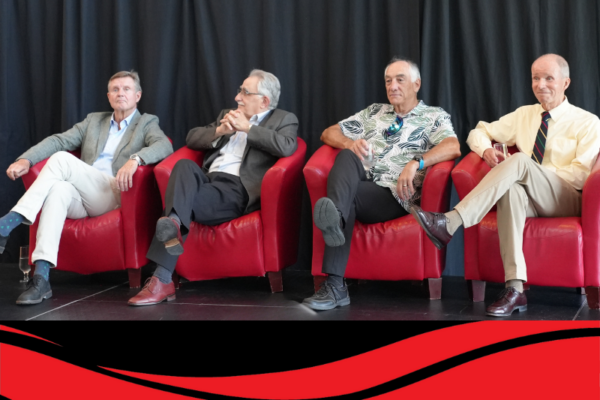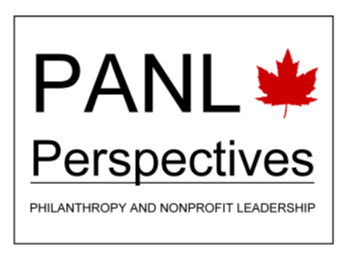Calum M. Carmichael

Retired Professor
-
- BA in Economics and Political Science (Western University)
- MPA in Economics and Public Policy (Princeton University)
- PhD in Economics (Princeton University)
Calum’s research has touched on several policy areas, including trade and monetary policy. Most recently, it has focused on ways in which governments do or could encourage and regulate the financial contributions that individuals make to charitable, nonprofit and political organizations.
I think of economics as a way to interpret human behaviour in terms of purposeful but constrained choice. As such, I have found economics to be a great investigative tool, enabling me to examine practices of governments in past or present-day settings, and to surmise what might have been the reasons for those practices, as well as their consequences. Economics has also proved to be a creative tool. It has introduced me to different issues, institutions and time periods; and it has challenged me to come up with models of interactive human behaviour that are simple in the sense of being able to generate certain hypotheses and results, but that are not simplistic in the sense of still being able to capture key aspects of the settings at hand – whether those settings involve funding the navy in classical Athens, or defining the bounds of charity in Tudor England, or lowering the tax credits for contributions to religious organizations, or disclosing the identities of donors to political parties.
Honours
- SPPA Society Teaching Award (2009-10)
Publications
-
- Carmichael, Calum M. “We Should Talk: Framing and Connecting the Legal Literatures on Charity Finance and Campaign Finance.” King’s Law Journal 31(3): pp. 402–425 (September 2020) Routledge.
- Carmichael, Calum M. “Sweet and Not-So-Sweet Charity: A Case for Subsidizing Contributions to Different Charities Differently.” Public finance review 40(4): pp. 497–518 (July 2012). Los Angeles, CA: SAGE Publications.
- Carmichael, Calum M. “Dispensing Charity: The Deficiencies of an All-or-Nothing Fiscal Concept.” Voluntas (Manchester, England) 23(2): pp. 392–414 (June 2012). Boston: Springer. DOI:
- Carmichael, C. M. “Charity misplaced: The formation in common law of a deficient fiscal concept.” Charity Law & Practice Review 13(2): pp. 27-49 (2011)
- Carmichael, Calum M. “Doing Good Better? The Differential Subsidization of Charitable Contributions.” Policy & society 29(3): pp. 201–217 (2010). Elsevier Ltd.
- Calum M Carmichael. “Managing Munificence: The Reform of Naval Finance in Classical Athens.” Historical methods 42(30): pp.83-96 (July 2009) Washington: Taylor & Francis Inc. ISSN: 0161-5440
- Carmichael, Calum M. “Public Munificence For Private Benefit.” Economic inquiry 35(2): pp. 261-270 (1997) Oxford, UK: Blackwell Publishing Ltd.
- Carmichael, Calum M. “The Interdependence of Firm and Government Behaviour: Boeing and Eximbank.” Applied economics 23(1): pp. 107–112 (January 1991): London, etc: Chapman and Hall Ltd.
- Carmichael, Calum M. “Shifts in the Indicators Used by the Monetary Authorities in Canada.” Journal of macroeconomics 13(3): pp. 523–534 (1991): Detroit: Elsevier Inc.
- Carmichael, Calum M. “Economic Conditions and the Popularity of the Incumbent Party in Canada.” Canadian journal of political science 23(4): pp. 713–726 (December 1990) New York, USA: Cambridge University Press.
- Carmichael, Calum M. “The Control of Export Credit Subsidies and Its Welfare Consequences.” Journal of international economics 23(1): pp. 1–19 (1987) Amsterdam: Elsevier B.V.
-
- “Charitable ends (perhaps) by political means: what are governments regulating?,” in P. Henry and G. Lideikyte-Huber, eds, The Routledge Handbook on Taxation and Philanthropy, London: Routeledge, 2021.
- “Creating Incentives: Tax Systems in Comparative Perspective,” in J. Harrow, T. Jung, and S. Phillips, eds, The Routledge Companion to Philanthropy, London: Routledge, 2016.
Videos & Media Coverage
-
- New Platform to Mobilize Knowledge in the Philanthropic and Nonprofit Sector (Carleton FPA, Oct 2020)
- FPA Celebrates Outstanding Faculty and Staff (Carleton FPA, Apr 2015)
SPPA News

SPPA Retirement Celebration for Frances Abele, Calum Carmichael, Leslie Pal, Saul Schwartz, Glen Toner and Stan Winer
An emotional SPPA Celebration! On Thursday June 22, SPPA celebrated six retiring faculty members : Frances Abele, Calum Carmichael, Leslie Pal, Saul Schwartz, Glen Toner …

New Platform to Mobilize Knowledge in the Philanthropic and Nonprofit Sector
PANL Perspectives is a new platform that offers news and insights for philanthropy and the nonprofit sector in Canada. The editors and editorial team produce and gather evidence-based …